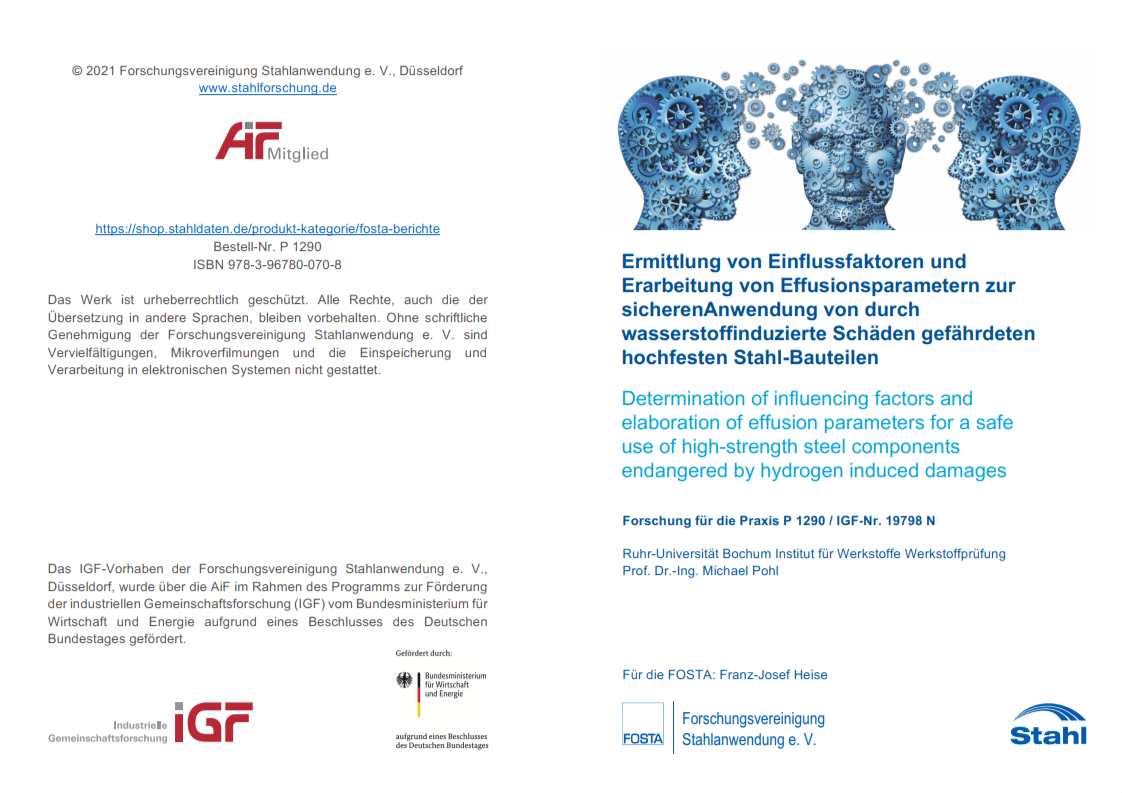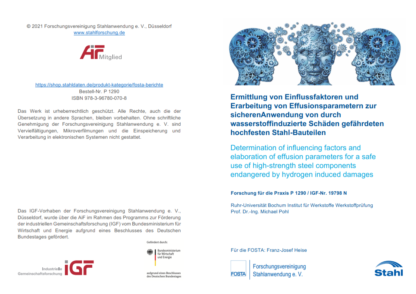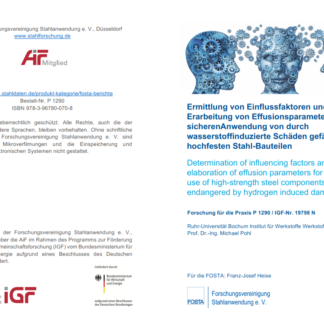Description
P 1290 – Determination of influencing factors and elaboration of effusion parameters for a safe use of high-strength steel components endangered by hydrogen induced damages
In the metal processing industry, especially in the automotive industry, the use of highstrength or ultra-high-strength steels has increased steadily in recent years. However, these steels exhibit a high risk of hydrogen embrittlement. During the production of high strength material components there are several procedures where hydrogen is brought in. Heat treatment steps which are used to reduce the hydrogen content are often performed for longer periods than necessary due to a lack of knowledge of the effusion mechanisms.
In this research project, the influence of materials and micro structures on hydrogen diffusion, absorption and effusion are examined. The aim is to calculate effusion times and temperatures that are sufficient to reduce the hydrogen content to an uncritical level. Effusion diagrams should be calculated as an assistance for the heat treatment in production facilities of SMEs.
There are three types of steels under investigation (22MnB5, DP800, 42CrMo4), which are examined in various mircro structures (martensitic, dual phase, normalized) and different degrees of deformation (Φ=0, 0.4 and 0.7). The influence of structure, plastic deformation and temperature on the hydrogen effusion should be investigated. By means of permeation measurements at RT and 70 °C, extrapolations of diffusion and effusion coefficients at various temperatures are possible. On the basis of these diffusion and effusion coefficients, effusion times for possible heat treatment temperatures were calculated numerically. The numerical simulations were validated by means of permeation measurements and exposure tests in the furnace of the Thermal Desorption Spectroscopy (TDS).
By means of electrochemical hydrogen charging with variable charging times, saturation curves are determined and the hydrogen uptake depending on the structure is investigated. In a thermally controlled chamber of a tensile testing machine, the influence of applied mechanical stresses on the hydrogen effusion is investigated. The permeation and effusion curves show that plastic deformation decreases hydrogen diffusion and effusion significantly. Moreover, plastic deformation leads to a significant increase of hydrogen uptake, which is about 10 times higher than without deformation. The differences in diffusion coefficients and hydrogen uptake between the predominantly ferritic and martensitic structures are comparatively small. The comprehension of simulated effusion curves and measured curves in the permeation cell and TDS confirm the correlation between numerical simulations and hydrogen effusion in the investigated materials. Therefore, effusion diagrams where calculated, which enable an assesment of effusion times. These diagrams were validated with sample components (deep-drawn cup, Rastegajev sample). Effusion times within the effusion diagrams are comparatively long, because of that too short times are avoided. It was also shown that applied mechanical stresses slow down hydrogen effusion significant.
Published in:
2021
Authors:
Prof. Dr.-Ing. M. Pohl




